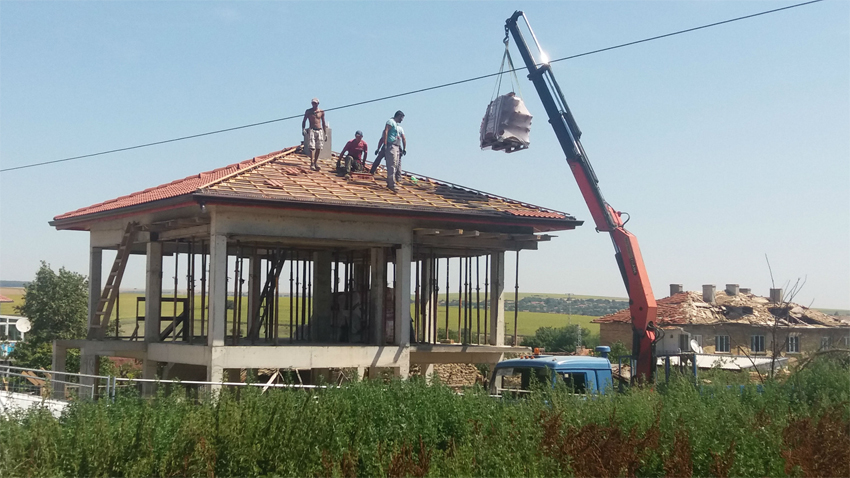The residents of the village of Hitrino in the region of Shumen will remember 10 December 2016 as the most tragic day in their lives. A derailed train and the explosion that followed of cisterns with polypropylene and propane-butane swept away houses and buildings in the area. The survivors say that what happened was like a war. Statistics too are telltale about the tragedy: seven died in the inferno, 29 suffered serious injuries and 27 houses were reduced to ashes.
The two drivers of the derailed train are facing charges for causing the death of seven people and injuries to 14 people by negligence. The investigation has found that the train was running at a speed twice the permissible one of 40 km/h, the railway infrastructure was in order and there was no reason for the train to derail due to technical failure.
A year after the disaster in Hitrino, the victims are still waiting for financing for the repair of their houses and their yards look like construction sites. For rebuilding the village, 2.5 million euro was allocated by the Social Ministry and more than 1 million euro by the Bulgarian Red Cross.
In an interview with Radio Bulgaria, Hitrino mayor Nuridin Ismail said that all the inhabitants of the village will have a roof over their heads this winter. Do they manage though to recover from the nightmare of the inferno? Here's the Mayor's answer:
“Time is needed for Hitrino to shake off the nightmare of that night. This time depends on the scale of losses that people suffered. For a year we have done a lot but the grief and pain will be for life for some. The grief for losing relatives or friends is inconsolable. This event has changed people but I believe that many of them will gradually return to their normal routines as time goes by.”

The tragedy in Hitrino has united the Bulgarian people and many have shown compassion for their compatriots in big trouble. The Mayor of Hitrino is grateful for this response:
"The way this tragedy united people in Bulgaria is unprecedented. People from all over Bulgaria, regardless of region, municipality, ethnicity or religion, united to support the victims and provided an admirable example of national unification. We received this kindness, this warmth with tears in our eyes and we were deeply touched by the sympathy of the nation."
Tsvetan Tsvetkov from Hitrino is one of the survivors in the nightmare. His voice still trembles when he revisits that dismal morning of 10 December 2016:
"The tragedy was huge. I've watched many horror movies, but I haven’t seen such a thing. I could not believe my eyes; I thought I was in a nightmare scenario. I was still in bed when there was a rumble and some powerful vibrations. I felt as if a huge truck came into the house and rocked it. Then a huge thunder was heard and all windows were broken. I went out and saw that the sky was fiery red. Many people like me still cannot overcome the fear and horror, and we often dream flames and desperate shouts of people for help."
On the occasion of the anniversary of the Hitrino Station tragedy, a votive offering ritual will be held on 17 December observing both the Christian and Muslim traditions.
English Daniela Konstantinova
A fifteen-hour programme of authentic Rhodope music will resound in the Ilinden meadows from today until Sunday on the occasion of the traditional local Ilinden Fair in the village of Gela. Thousands of visitors are expected to come to see the bagpipes,..
For the 15th consecutive year, the "Miracle Worker of Rila" pilgrimage gathers Orthodox Christians from near and far to walk from Sofia to the Rila Monastery. The Holy Metropolis of Sofia announces on its website that the pilgrimage is organised with the..
After dedicating 23 years of his life to the Royal Navy, British man Darren Carter decided to retire in 2013. He admits that for years he had been drifting aimlessly through the "rough waters of life", moving from job to job, country to country - until..
The first Trahana Festival in Bulgaria will take place this Saturday, August 3. The event, which celebrates the memory of ancestors encoded in traditional..
Serbia reports drop in migrant numbers and closes refugee centres The Serbian Commissioner for Refugees and Migration, Nataša Stanisavljević, has..
Bulgaria became the vice-champion in student debating at the World Schools Debating Championships in Belgrade, Serbia, at the end of July. 68..

+359 2 9336 661
